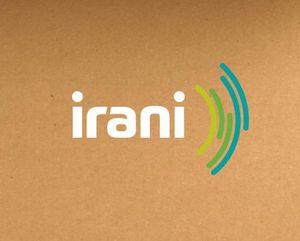Last week, the NFL witnessed yet another thrilling showdown: the Kansas City Chiefs versus the Las Vegas Raiders. But this game won't just be remembered for the scores and plays; it sparked debates for reasons beyond the playing field. Fans and analysts alike are still buzzing about controversial decisions made during the game, which have reignited discussions about officiation standards and the integrity of the league.
The game was already charged with excitement, especially with the storied rivalry between the Chiefs and Raiders. The atmosphere was electrifying as fans filled Allegiant Stadium on October 15, bringing their unabashed support for their respective teams. Both teams came prepared, but as the game progressed, it became evident this matchup would be defined by contentious calls.
One of the central issues arose during the second half when Chiefs quarterback Patrick Mahomes threw what appeared to be the game-winning touchdown. The jubilant atmosphere quickly turned to confusion as officials threw flags, leading to the apparent cancellation of the touchdown. The referees ruled there was offensive pass interference involving Chiefs wide receiver Kadarius Toney. Fans took to social media, voicing their frustrations and probing the reasoning behind the call, pointing out how it changed the momentum drastically.
“We work hard, but those calls just kill us,” voiced one frustrated fan, echoing sentiments held by many watching from home and the stands. The gravity of the play and the ensuing discussion spiraled out on various platforms, with experts dissecting the incident. Some claimed it was too subjective of a call; others argued it was made correctly according to NFL rules. The finely balanced nature of officiation was put on full blast, testing the players' morale and the fans' patience.
Another hot topic was the late-game decision to penalize Raiders players for unsportsmanlike conduct. It struck fans as excessive, particularly because it tilted the scales undeniably against the Raiders. The Chiefs managed to use this advantageous positioning to score yet again, which led to skepticism surrounding the consistency of officiation across the league.
Refereeing has long been under scrutiny, and this incident was just the cherry on top of existing controversies surrounding the league's officiation policies. According to NFL rules, every call must be transparent, yet with every new season, fans find their trust wavering. “How can we expect the game to maintain its integrity when calls like this happen?” asked one long-time fan disenchanted by the current state of officiation.
Analysts are urging the NFL to reconsider how officials are trained and held accountable. While some assert the need for more rigorous training processes, others tout the benefits of implementing technology like instant replay and challenges. Could technology be the savior of the league's officiation problems? Some cautiously believe it could restore both player and fan confidence.
Yet, it isn’t just the fans raising eyebrows; former players have chimed in too. NFL Hall of Famer Michael Irvin commented on the growing unrest with officials, saying, “It's not about winning or losing, but about fairness. Everyone loves the game, but we need to fix the officiation. Too many people are getting hurt by poor calls.” His sentiments resonate with countless individuals vested emotionally as well as economically in the NFL.
These calls during the Chiefs-Raiders clash could be termed as merely one moment, but they symbolize a much larger conversation about fairness and consistency. The NFL has shown it’s still grappling with challenges around officiation reforms—what will it take for change to stick?
With multiple games on the horizon and the stakes continuously rising, the outcomes of the Chiefs-Raiders game linger like smoke from fireworks—indelible and hard-hitting. Future matchups will likely carry the same scrutiny, as both fans and analysts dissect each judgment call with newfound skepticism. Could this be the catalyst for the NFL to step up its game when it pertains to its referees? One can only hope. The fans are eager for decisions not only to reflect the established rules but also to do their part to preserve the integrity of the sport they hold so dear.
All eyes remain glued to how the NFL navigates through this controversy. Will they finally embrace technological advances and implement strict evaluation systems for referees? For the sake of players, coaches, and fans alike, the league should engage with these pressing issues head-on.



